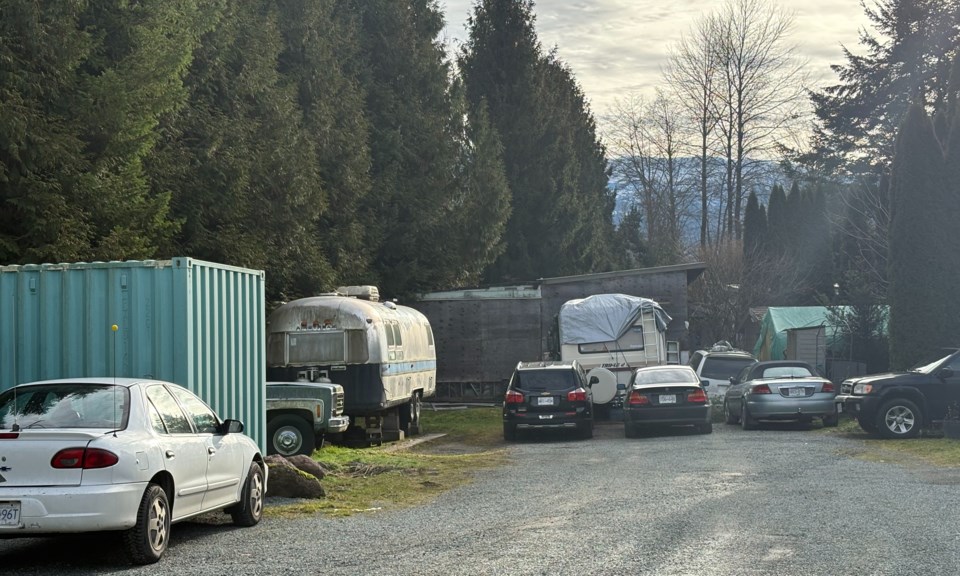For those wondering whether the Manufactured Home Park Tenancy Act (MHPTA) applies to the Riverside Trailer Park at 41119 Government Road:
In short, no.
The residents of the Riverside Trailer Park in Squamish, located at 41119 Government Road, were issued evacuation notices recently.
The trailer park is home to 11 families who have been given notice to vacate by September 2025.
Chief Bill Williams, the property owner, cited rising utility expenses and prohibitive infrastructure costs as reasons for the closure.
Williams gave residents a full year’s notice to vacate the park, during which the residents will not have to pay the rent.
The MHPTA does not apply to Riverside Trailer Park because it is located on reserve land.
The MHPTA is designed to offer protections to tenants, but it doesn’t always apply—especially when it comes to reserve land.
So, what does this mean for the Riverside trailer park residents and residents in other trailer parks?
Let’s break it down.
What is the MHPTA?
The Manufactured Home Park Tenancy Act (MHPTA) is a provincial law in B.C. that governs the relationship between landlords and tenants in manufactured home parks.
It provides protections for tenants who own their manufactured homes but rent the land they are placed on.
The act covers issues such as rent increases, evictions, maintenance responsibilities, and dispute resolution through the Residential Tenancy Branch (RTB).
The MHPTA is designed to offer security for tenants while ensuring landlords can manage their properties effectively.
However, not all manufactured home parks fall under this legislation.
“The Manufactured Home Park Tenancy Act (MHPTA) does not apply when a manufactured home park is on reserve land, regardless of the identity of the owner,” a spokesperson with the Ministry of Housing and Municipal Affairs confirmed with The Squamish Chief in an email.
If a park is not on reserve land, it would generally be governed by the MHPTA, but “any final decision about whether a manufactured home is covered by the MHPTA is a legal decision by a neutral Residential Tenancy Branch (RTB) arbitrator.”
The ministry clarified that “non-treaty First Nations land is under the jurisdiction of the federal government. Because of this, B.C.’s tenancy laws do not generally apply on First Nations reserve land.”
However, on First Nations treaty land, the applicability of the RTB depends on the terms outlined in the Final Agreement and whether the respective First Nation has enacted its own tenancy laws.
What options do displaced residents have?
For residents facing displacement, this distinction is crucial.
If their homes are located on non-treaty reserve land, provincial protections under the MHPTA may not be available. Instead, residents may need to seek guidance from local First Nations authorities or federal housing agencies.
In cases where the MHPTA does not apply, affected residents are encouraged to inquire with local Indigenous governance offices, as tenancy disputes or eviction concerns may fall under alternative regulations or community-specific agreements.
The Residential Tenancy Branch, which typically oversees disputes under the MHPTA, may not have jurisdiction in these instances.
The Ministry of Housing and Municipal Affairs further suggested in an email, “You may wish to inquire with the local Squamish Nation office.”
What if MHPTA applies to your land?
For manufactured home parks that fall under the MHPTA, landlords planning to close a park and end tenancies must follow specific legal requirements:
- 12 months’ notice: A landlord must provide at least one year’s notice before closing a park.
- Compensation for tenants:
- $20,000 per tenant (an increase from the previous requirement of 12 months of pad rental costs).
- Additional compensation if a manufactured home cannot be relocated—owners must compensate tenants for the assessed value of the home (above $20,000). Previously, there was no compensation in this situation.
- No disposal costs for tenants: If a tenant cannot relocate their home, they are not responsible for its disposal costs.
- Penalties for landlords who back out: If a landlord issues a closure notice but doesn’t follow through, they must pay tenants 12 months’ pad rental or $5,000 (whichever is greater).
- Until the tenancy officially ends, the landlord must meet all obligations under the MHPTA. If issues arise, tenants can contact the RTB for support and further action.
Where can residents find more information?
For more information on tenancy laws and available resources, residents can visit the provincial government's housing and tenancy website at B.C. Tenancy Laws and Rules.
Note: The Squamish Chief reached out to the Squamish Nation to confirm whether 41119 Government Road falls within reserve land and whether the Nation has its own tenancy regulations, given that the MHPTA does not apply on reserve land. A response was not received by the time of publication.
Bhagyashree Chatterjee is The Squamish Chief's Indigenous and civic affairs reporter. This reporting beat is made possible by the Local Journalism Initiative.



